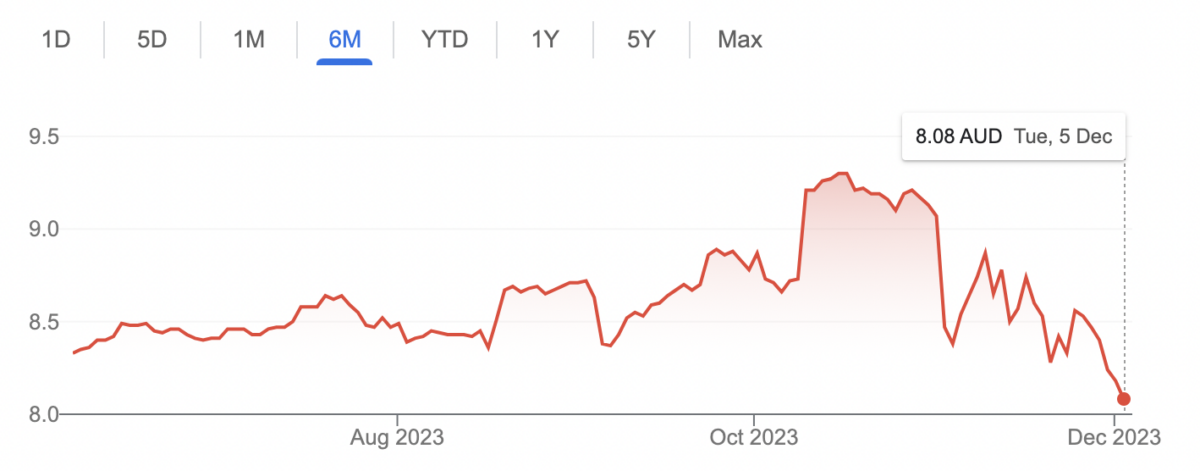Australia’s second largest energy generator and retailer, Origin Energy, on Monday announced 31.08% of its shareholders had voted against Canadian investment giant Brookfield’s $20 billion (USD 13.2 billion) takeover bid, which was founded on a proposal to invest between $20 and $30 billion to transition Origin to renewables. While the majority of shareholders were in favour of the takeover, with 68.92% voting for the deal, the scheme required 75% approval.
Despite having previously flagged it would continue with its corporate takeover strategy, Brookfield on Monday said it will now “evaluate its next steps, if any.” Media outlet Reuters reported that a source familiar with the matter said Brookfield had “no intention of returning with a renewed offer.”

Image: screenshot
Part of this decision seems to rest on the federal government’s recent expansion of its Capacity Investment Scheme. In November, the government announced it would underwrite 32 GW of renewables, something the Reuters source claimed would have a negative impact on Origin’s future earnings, since the company has played a relatively limited role in Australia’s renewable space to date, meaning it would not be a competitive player in the government’s auction-based scheme.
Origin’s CEO, Frank Calabria, separately flagged the matter on Monday, saying “a lot of people will be competing for renewables and storage under this new scheme.”
The failure of the bid seemingly concludes an exciting, albeit brief, moment in Australia’s corporate energy space. In April 2022, Brookfield paired with software billionaire Mike Cannon-Brookes to bid for Australia’s largest gentailer, AGL. The deal fell apart that same year, with Brookfield then forming a consortium with US investor EIG Partners to bid for Origin.
Both bids proposed using private capital to transform the two massive publicly-listed Australian utilities, which have been sluggish to transition their fleets to renewable-based technologies.
The collapse of the climate-takeover corporate strategy, which in Origin’s case largely came down to opposition from its largest shareholder, superfund Australian Super, issues an interesting revelation. As Anthony Macdonald put it in the Australian Financial Review, “in fact, the whole Brookfield vs AusSuper episode proves that capital is not the problem.”
“A $20 billion board-recommended bid has never been blocked by shareholders in Australia,” he added.
Australian Super, which upped its stake in Origin from around 13% to 17% ahead of the shareholder vote on the deal, has now said it is “open to providing capital to assist Origin as it prepares to transition over the coming decades.” What kind of figures it envisions are not clear, but it certainly will not be close to the $20 – $30 billion figure Brookfield had flagged.
Former Australian Prime Minister Paul Keating criticised the deal on the basis that Brookfield’s takeover would mean the utility would be privatised, which plays into broader concerns around privatisation of key Australian assets and companies.
Independent media outlet Michael West Media also applauded the no vote on the basis of Brookfield’s alleged history of tax avoidance in Australia.
Origin Energy shareholders pulling the plug on Brookfield is good for customers. Brookfield are notorious tax dodgers and energy market vertical integration from the deal wd be bad for power prices#auspol https://t.co/UH6gSTOS9u
— 💧Michael West (@MichaelWestBiz) December 4, 2023
This content is protected by copyright and may not be reused. If you want to cooperate with us and would like to reuse some of our content, please contact: editors@pv-magazine.com.









1 comment
By submitting this form you agree to pv magazine using your data for the purposes of publishing your comment.
Your personal data will only be disclosed or otherwise transmitted to third parties for the purposes of spam filtering or if this is necessary for technical maintenance of the website. Any other transfer to third parties will not take place unless this is justified on the basis of applicable data protection regulations or if pv magazine is legally obliged to do so.
You may revoke this consent at any time with effect for the future, in which case your personal data will be deleted immediately. Otherwise, your data will be deleted if pv magazine has processed your request or the purpose of data storage is fulfilled.
Further information on data privacy can be found in our Data Protection Policy.